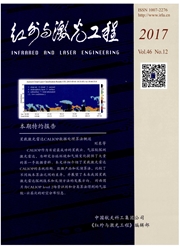

 中文摘要:
中文摘要:
为了深入地研究在紫外波长范围内利用增益介质补偿等离子传输损耗,设计了具有半导体增益介质的金属-半导体-金属(Metal-Semiconductor-Metal,MSM)等离子体光波导结构。基于时域有限差分法(FDTD),对该波导结构的传输损耗、有效折射率随几何结构的依赖关系进行了分析。进一步研究了利用II-VI族半导体ZnO作为增益介质时的无损传播条件。结果表明,当ZnO宽度为80 nm时,MSM等离子波导可以实现紫外波长范围的无损传播;当ZnO宽度大于80 nm时,传播增益明显大于损耗,可以实现等离子极化波的传播放大,为表面等离子体基元纳米激光器技术提供理论依据。
 英文摘要:
英文摘要:
For further study of the gain compensation of plasmonic waveguide for the propagation loss in the range of ultraviolet wavelengths, the metal-semiconductor-metal(MSM) plasmonic waveguide structure embedded with semiconductor gain medium was proposed and designed in this article. Based on the finite difference time-domain(FDTD) method, the dependences of propagation loss and effective refractive index on the geometrical parameters of the waveguide structure were analyzed. In addition, the condition for lossless propagation in using II-VI semiconductor material ZnO as the gain medium was investigated. The simulation results show that the lossless gain-assisted surface plasmon polartions propagation in MSM can be achieved for ultraviolet wavelengths when the width of the semiconductor core is 80 nm; and the propagation loss is much less than the gain obviously as the width of ZnO is greater than 80 nm. This achievement can realize the propagation amplification of surface plasmonic polartions, which provides the theoretical support for surface plasmon polariton nano-laser technologies.
 同期刊论文项目
同期刊论文项目
 同项目期刊论文
同项目期刊论文
 期刊信息
期刊信息
